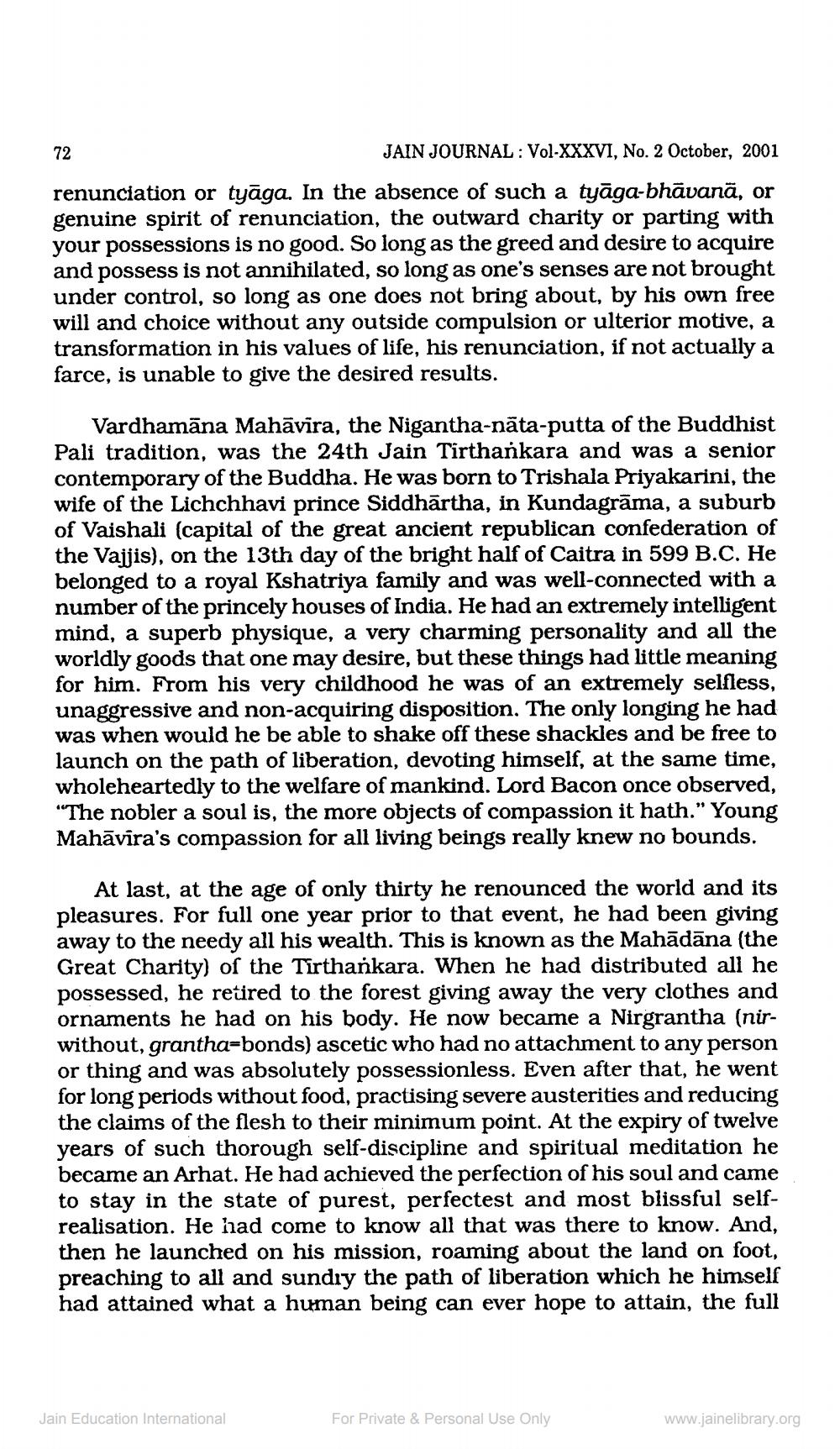________________
JAIN JOURNAL: Vol-XXXVI, No. 2 October, 2001 renunciation or tyāga. In the absence of such a tyāga-bhāvanā, or genuine spirit of renunciation, the outward charity or parting with your possessions is no good. So long as the greed and desire to acquire and possess is not annihilated, so long as one's senses are not brought under control, so long as one does not bring about, by his own free will and choice without any outside compulsion or ulterior motive, a transformation in his values of life, his renunciation, if not actually a farce, is unable to give the desired results.
Vardhamāna Mahāvira, the Nigantha-nāta-putta of the Buddhist Pali tradition, was the 24th Jain Tirthankara and was a senior contemporary of the Buddha. He was born to Trishala Priyakarini, the wife of the Lichchhavi prince Siddhārtha, in Kundagrāma, a suburb of Vaishali (capital of the great ancient republican confederation of the Vajjis), on the 13th day of the bright half of Caitra in 599 B.C. He belonged to a royal Kshatriya family and was well-connected with a number of the princely houses of India. He had an extremely intelligent mind, a superb physique, a very charming personality and all the worldly goods that one may desire, but these things had little meaning for him. From his very childhood he was of an extremely selfless, unaggressive and non-acquiring disposition. The only longing he had was when would he be able to shake off these shackles and be free to launch on the path of liberation, devoting himself, at the same time, wholeheartedly to the welfare of mankind. Lord Bacon once observed,
he nobler a soul is, the more objects of compassion it hath." Young Mahāvira's compassion for all living beings really knew no bounds.
At last, at the age of only thirty he renounced the world and its pleasures. For full one year prior to that event, he had been giving away to the needy all his wealth. This is known as the Mahādāna (the Great Charity) of the Tirthankara. When he had distributed all he possessed, he retired to the forest giving away the very clothes and ornaments he had on his body. He now became a Nirgrantha (nirwithout, grantha=bonds) ascetic who had no attachment to any person or thing and was absolutely possessionless. Even after that, he went for long periods without food, practising severe austerities and reducing the claims of the flesh to their minimum point. At the expiry of twelve years of such thorough self-discipline and spiritual meditation he became an Arhat. He had achieved the perfection of his soul and came to stay in the state of purest, perfectest and most blissful selfrealisation. He had come to know all that was there to know. And, then he launched on his mission, roaming about the land on foot, preaching to all and sundıy the path of liberation which he himself had attained what a human being can ever hope to attain, the full
Jain Education International
For Private & Personal Use Only
www.jainelibrary.org




